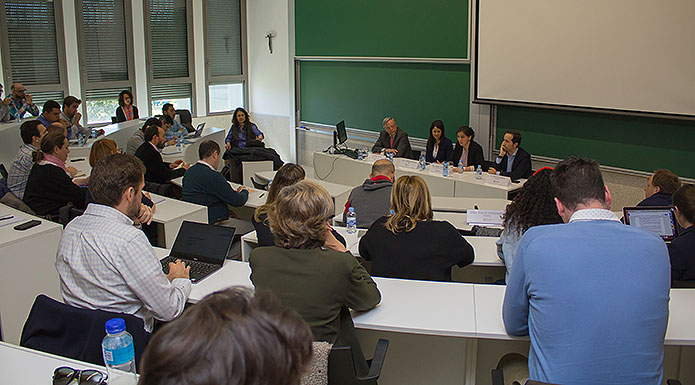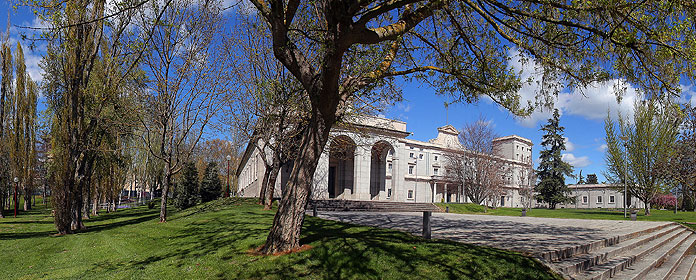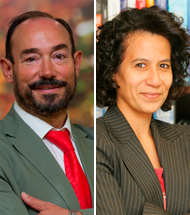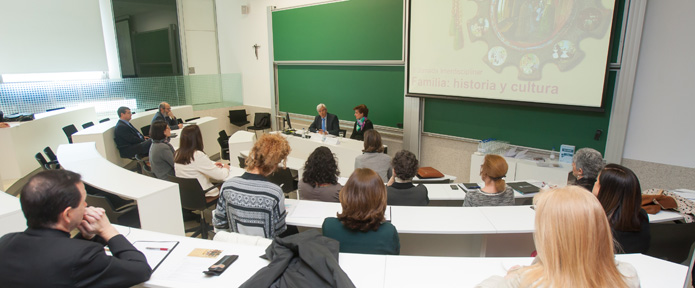Vicente Muñoz, at the University of Navarra: “In 2030, one trillion things will be connected”
The Director of the Internet of Things of Telefónica spoke at the 2nd Big Data Conference

“The world is now changing radically. In 2030, one trillion things will be connected”, said Vicente Muñoz at the University of Navarra. The Director of the Internet of Things of Telefónica participated as a speaker in the 2nd Big Data Conference, which was organized by the School of Economics and Business Administration and the Institute of Culture and Society (ICS).
According to Muñoz, the increase in the number of mobile devices, the connectivity between those devices and the massive generation of data represent potential business opportunities for many companies. He said,“ We’re going to generate more knowledge than ever”.
Daniel Peña, the Director of theUC3M-BS INSTITUTE OF FINANCIAL BIG DATA (IFIBID),said there was a lack of awareness of the incredible amount of data in Spain and the very limited amount of research being done on it:“All the questions that can be answered with all the data we have can’t be imagined.”
Based on this premise for data analysis, Christine Choirat, a Health Data Scientist at the Harvard T.H. Chan School of Public Health, said, “The way to use big data is to start with a scientific question and try to use the data to answer it, not the other way round”. In the lecture“ Big Problems. Big Data”, she shared the results of her mass data analysis in public health at Harvard University, where hourly pollution emissions from all the power stations in the United States are examined in relation to more than 40 million pieces of data.
Tomasa Rodrigo, an economist in the Cross-Country, Emerging-Markets Analysis Unit of BBVA Research, highlighted the importance of adding “new skills” to adapt to this new area: “You have to be able to combine knowing how to find the information, analysing it and communicating it.”
The hyperrealities of the futureThe big data digital revolution will affect the business world and university education, among other areas.“The top three companies in the world today got there thanks to the benefits they obtain from massive amounts of data”, said Daniel Peña. “In the next ten years, most industries will change their business model”, added Vicente Muñoz, who said that some of the“ hyperrealities” coming soon include orthoses that will measure athletes’ behaviour and cars that will make real-time decisions based on obstacles at a distance of 60 miles.
According to Tomasa Rodrigo, some of the specializations called for in the future will include engineers, security experts, computer programmers and emotional intelligence analysts, because“ we’ll need experts who know how to enrich data analysis”. These professionals will also need“ other skills such as creativity, co-innovation, emotional intelligence and the ability to reinvent themselves”, said Vicente Muñoz.
Daniel Peña pointed out the need for legislation on data ownership and use to avoid “social inequality” and the abuse of information. According to Muñoz, governments, citizens and business people are all responsible and “the more the topic is discussed”, the more awareness will be raised.




